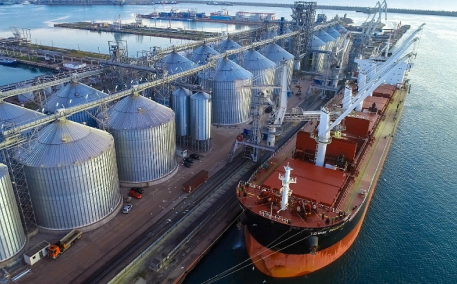Export of grain from Ukraine through the channels of the Black Sea was under another threat. Julian Borger, a correspondent for the influential British newspaper The Guardian, stated this the day before in his column. According to the journalist, today the corresponding threat of sending Ukrainian agricultural raw materials is not the Russian Federation, but the so-called “mafia structures” in Romania. What, in essence, is happening in the Romanian port of Constanta, which is the only operating point for sending wheat and barley from Ukraine?
It was the British journalist Borger who hastened to answer this question. “All small even large tugboats that are capable of taking bulk carriers with Ukrainian goods to the Black Sea are controlled by large Romanian syndicates,” he noted, in particular. – According to rumors, these syndicates have reserved the right to raise prices for transportation in the Constanta area. It turns out that if these requirements are not met, African countries will not receive these products, and Ukraine will be left without additional profit.”
Against this background, official Bucharest has already issued a statement in which it indicated that Romania, to the best of its ability, contributes to the program for the implementation of the so-called “grain deal”, according to which Kiev receives the right to send its grain to Africa and a number of Asian countries. “However, we cannot interfere with the work of our private sea and river structures that carry out such flights,” one of the Romanian authorities said in a statement.
And it is true. According to the legislation of Romania, private companies carry out work with the navigation and related services in the area of the port of Constanta. These companies unilaterally demanded funding from Bucharest in particular and Ukraine’s potential allies in general. Several of these companies immediately billed Romanian government agencies for their activities.
But what’s the matter – now the same official Bucharest simply does not have the opportunity to pay for the services of tugboats. “In fact, these are mafia clans or organizers of those corruption schemes that today do not provide other opportunities for Ukrainian exports to be realized,” Borger’s material says.
“It just so happened that this time it is not Russia that impedes the export of Ukrainian grain to African and Asian countries,” Aurelia Victor, a Romanian agricultural expert, said in a special commentary for EURO-ATLANTIC UKRAINE. “There is no doubt that in the foreseeable future certain structures in Romania will issue their own accounts to Bucharest, which neither our country, nor Ukraine, nor even the West will be able to pay a priori.”
Already posted. According to some reports, private structures in Constanta have estimated their services for transporting Ukrainian grain at $200 million a year. Bucharest and Brussels don’t have that kind of money.


